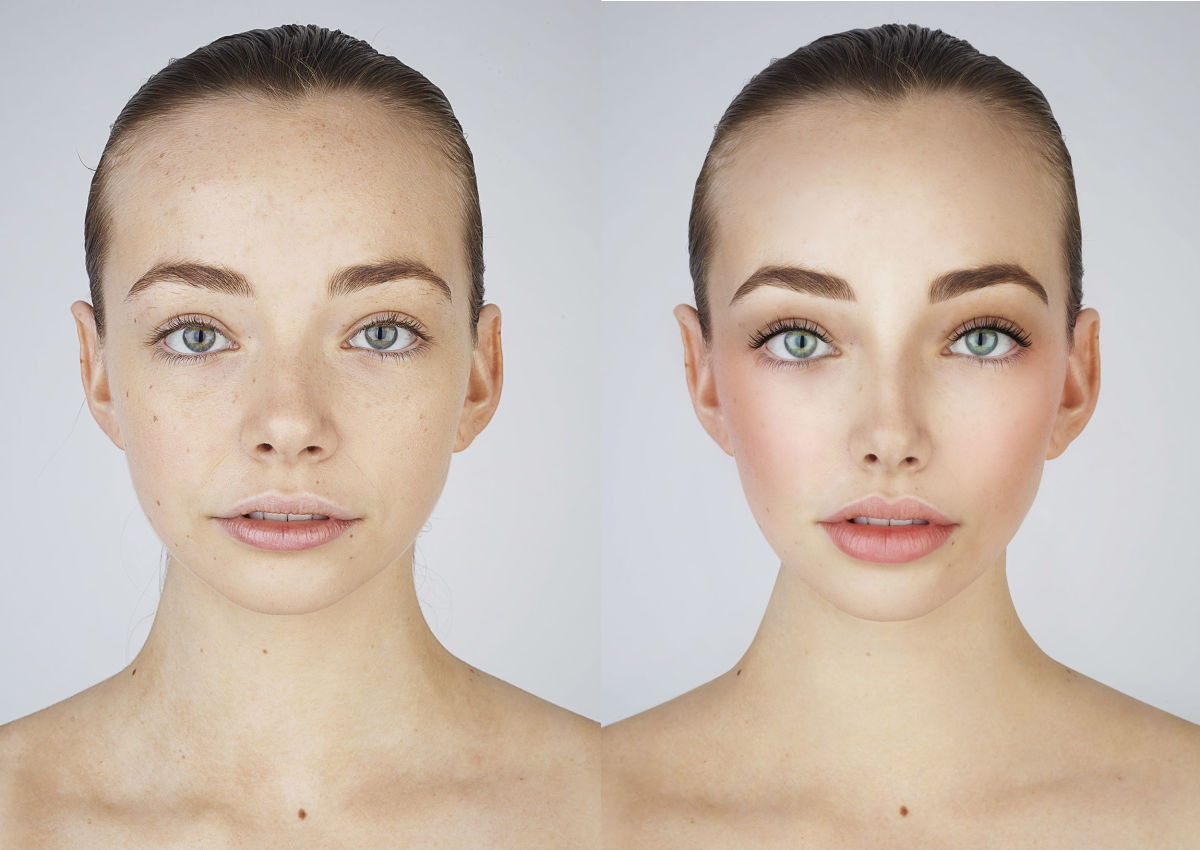Rankin, célèbre photographe de mode se lance dans le projet “Selfie Harm
Instagram est sans conteste le temple du fake . Des corps parfaits à gogo et des teints glowy à souhait inondent chaque jour notre fil d’actualité. Les plus jeunes utilisateurs perdent confiance en eux et font parfois l’erreur de s’identifier à ces canons de beauté virtuels… Ainsi, le compte Instagram @rankinarchive ayant recours à des logiciels de retouche photo dénaturant leur visage. Pour le projet, Rankin a demandé à 14 jeunes filles et jeunes garçons de poser devant la caméra , puis de modifier leur photo jusqu’à ce qu’elle soit “assez bien pour les réseaux sociaux” à leurs yeux. Contre toute attente, les adolescents sont méconnaissables… Affligeant !
Voir cette publication sur Instagram
In 2003, I was asked by @theofficialselfridges to work on a body politics window display for their “Body Craze” theme. Photoshop had been around for about 12 years and was starting to pervade the photography business in what I perceived as a very harmful and damaging way. As we all got used to this new technology, most photographers were guilty of over using it in some way (me included!). Also the early Photoshop technicians were very heavy-handed, and there wasn’t a great deal of subtlety in the way they altered images, especially when it came to something as intricate and nuanced as skin. I found the whole process problematic because I really felt (and still do) that a person’s personality could be found in their idiosyncrasies; for me it was what made them, them. But with digital retouching it’s so easy to lose/tidy/clean those little bits of imperfection, and step-by-step people’s images merged into one. My concept for the body politics project was to find people who were considering (or had considered) some form of cosmetic surgery. I wanted to photograph them as they were, then retouch what they wanted to change about themselves. Looking back at it now, I’m not sure our images worked that well because the use of Photoshop is far too inelegant, even for the sake of the project. But the really fantastic outcome was that (like Selfie Harm) nearly ALL the subjects preferred their unretouched image. Now, the thing that really stands out for me when looking back at these images is how similar they are to what I’ve done with the apps for my recent project, Selfie Harm. As the apps get more sophisticated and the technology becomes more polished, they are going to offer even better filters that will be scarily indiscernible from reality. Scary stuff! Thanks to: Noreen, Rebecca, Mike, Stavorig, Lindsay & Rose for participating in this project 🙌🏻
Une publication partagée par Rankin Photography (@rankinarchive) le 4 Févr. 2019 à 9 :46 PST
Voir cette publication sur Instagram
In 2003, I was asked by @theofficialselfridges to work on a body politics window display for their “Body Craze” theme. Photoshop had been around for about 12 years and was starting to pervade the photography business in what I perceived as a very harmful and damaging way. As we all got used to this new technology, most photographers were guilty of over using it in some way (me included!). Also the early Photoshop technicians were very heavy-handed, and there wasn’t a great deal of subtlety in the way they altered images, especially when it came to something as intricate and nuanced as skin. I found the whole process problematic because I really felt (and still do) that a person’s personality could be found in their idiosyncrasies; for me it was what made them, them. But with digital retouching it’s so easy to lose/tidy/clean those little bits of imperfection, and step-by-step people’s images merged into one. My concept for the body politics project was to find people who were considering (or had considered) some form of cosmetic surgery. I wanted to photograph them as they were, then retouch what they wanted to change about themselves. Looking back at it now, I’m not sure our images worked that well because the use of Photoshop is far too inelegant, even for the sake of the project. But the really fantastic outcome was that (like Selfie Harm) nearly ALL the subjects preferred their unretouched image. Now, the thing that really stands out for me when looking back at these images is how similar they are to what I’ve done with the apps for my recent project, Selfie Harm. As the apps get more sophisticated and the technology becomes more polished, they are going to offer even better filters that will be scarily indiscernible from reality. Scary stuff! Thanks to: Anna, Beryl, Carlos, Jack, Joanne & Jo for participating in this project 🙌🏻
Une publication partagée par Rankin Photography (@rankinarchive) le 4 Févr. 2019 à 9 :28 PST
Voir cette publication sur Instagram
For my latest series, Selfie Harm 🤳 I photographed 14 teenagers & handed them the image to then edit & filter until they felt the image was ‘social media ready’. People are mimicking their idols, making their eyes bigger, their nose smaller and their skin brighter, and all for social media likes. It’s just another reason why we are living in a world of FOMO, sadness, increased anxiety, and Snapchat dysmorphia. It’s time to acknowledge the damaging effects that social media has on people’s self-image. Thanks to: the incredible individuals that took part in the @Visual.Diet project; Jennifer, Felix, Alessandra, Maisie, Isaac, Seb, Beneditcte, Shereen, Mahalia, Eve, Siena, Tomas, Emma & Georgia. Also, @mimigray_ at @mcsaatchilondon, @marinetanguyart, @gemfletcher, @technicallyron & @justintindall on making this project come to life 🙌 PLEASE NOTE 📝 The majority of subjects preferred their original image.
Une publication partagée par Rankin Photography (@rankinarchive) le 30 Janv. 2019 à 10 :23 PST
Il rajoute néanmoins que la plupart des jeunes modèles ont préféré le portrait original à la version modifiée !


